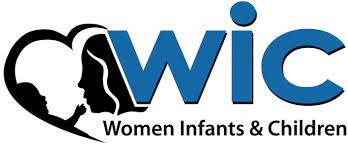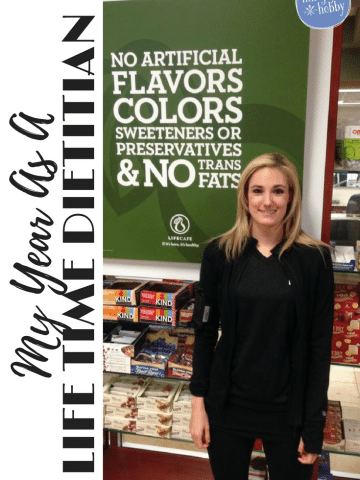Hi Friends! Happy Monday! Sorry my blogging schedule has been so erratic, I think it will be nighttime posts for the next week or so then back to morning posts. I'm loving my new job though so it's all worth it! Today's post is going to be about my year working as a WIC (Women Infant and Children Supplemental Food Program) Dietitian. What is WIC? It is a supplemental food program offered to low income women (pregnant, post partum or breastfeeding) and children up to age 5. In addition to supplemental healthy foods such as eggs, milk, cheese, fruits, and vegetables the program provides nutrition counseling and referrals for other programs. (Click here for a more in detail description.)

Today's post will focus on my experience as I know many of you are RD's to be and it may benefit you to hear my first hand experience. Please remember this is only my experience, make sure you talk with as many different people in areas you are interested in and not interested!
I was kind of secretive about where I worked until now because I honestly didn't know how I felt about it. It isn't somewhere I ever saw myself working (I always saw myself in the preventative health and fitness role). When I sent in the application I was getting anxious about finding a job because I had only seen clinical jobs posted and I knew I did not want to work in a hospital.
I should note that I wasn't working in your typical WIC setting, our program was overseen by the Inter Tribal Council of Arizona and targeted the urban Native American Population. Therefore, although we could see anyone at our clinics, the majority of my caseload was Native Americans and Mexican Americans. I should also note that my job was not just a Dietitian, but I also oversaw three clinics and supervised 7 staff members at those clinics. I'll focus mainly on my RD role because that's what most of you are probably interested in.
PROS/CONS Of Being a WIC Dietitian
Benefits:
- Extensive training (including college courses) in breastfeeding best practices, nutritional needs, counseling and anything else related to it. Opportunity to become an IBCLC if desired is a big big big plus.
- Extensive training in prenatal, pediatric and infant nutrition
- I learned how to counsel the disengaged because many, not all, but many clients did not want to spend time in nutrition counseling. I found what motivated them.
- I was provided a chance to travel to FNCE through my agency, a small community health center.
- Ability to help and reach the underserved, those who truly need your help.
Cons:
- A massive amount of training is required and on-going training is extremely tedious.
- A massive amount of federal regulations that must be complied with are hard to keep track of and even harder to ensure they are met.
- Some clients saw nutrition counseling sessions as a burden or barrier to get their checks instead of a service of a benefit. (However, they do have the right to refuse nutrition counseling and yes, some people refused to meet with me.)
My Thoughts
One thing that kept me at this job was actually the pay. I was making more than the average dietitian in their first year, especially at WIC. However, I was managing three clinics and a full staff, and for that I was incredibly underpaid. I also really enjoyed learning about breastfeeding and infant nutrition. The training was extensive and even included college courses. As an RD my day-to-day tasks were pretty straight forward and standardized. However, more often than not I felt disheartened working with clients. Sure, I had a couple of success stories from parents who were very grateful to work with me, but that wasn't the norm. I tried to help them the best I could, I tried to listen and help them past barriers. However, the fact is that with everything going on, nutrition was the last thing on their minds. On the other hand, the magical moments where I knew I was able to truly help someone who really needed my help and wouldn't have had access to nutrition services otherwise was overwhelmingly rewarding.
I took away many skills from my time at WIC. Daily I practiced engaging the disengaged. I used motivational interviewing to help clients determine motivation for changing their behavior or their children's behavior. I learned to encourage even the most minor healthy change. I became creative with resources to help clients with limited resources achieve healthy living. I developed a strong appreciation for everything I had and all the opportunities that have been available to me in my life. I believe acquiring all these skills have built a strong platform for me to have a successful career as a dietitian. I am happy to be now pursuing an area of true passion for me: weight loss coaching and performance sports nutrition.
Chat with me:
Have you heard of WIC, been to a clinic, worked at one? What was your experience?
What did you learn from your first professional job?
If you have any questions about working at WIC or my experience I'd love to answer them!






Karen says
Hi my name is Karen. I'm from Los Angeles California and currently in the hiring process for WIC as a non RD. I really want to work for WIC and give back to my community. I used to receive WIC when I was pregnant with my daughter up till her 1st bday. Do you have any advice you can give me, so I stand out and get hired? I've already done the group prescreen and center visit, just waiting to hear back if i get an interview.
Kelli Shallal MPH RD says
Sure! Email me at hungryhobby@gmail.com
Jon says
I hate how those WIC workers think they know more than my kids doctor. You're a glorified receptionist.
Kelli Shallal MPH RD says
As the head of 3 clinics I can tell you that my employees had rigorous training on child nutrition and breastfeeding, in fact, they had to take college classes, plus they always had me, the Dietitian to ask. They were in no way "glorified receptionists" they have a wealth of information to provide to the community so I'm sorry that is how you feel. That being said if anything they say conflicts with what your doctor says you should always refer to your doctor.
Meghan says
Most of the clients just want their vouchers so they can go. Most have no respect for WIC nutrition specialist. We are mostly appreciated by clients that are trying their best. Parents that can't get it together are the ones with the attitude problems and don't have time.
Kelli Shallal MPH RD says
I do remember feeling that way sometimes as well. But then sometimes I would get a high risk client who really wanted the advice so it made it seem worth it!